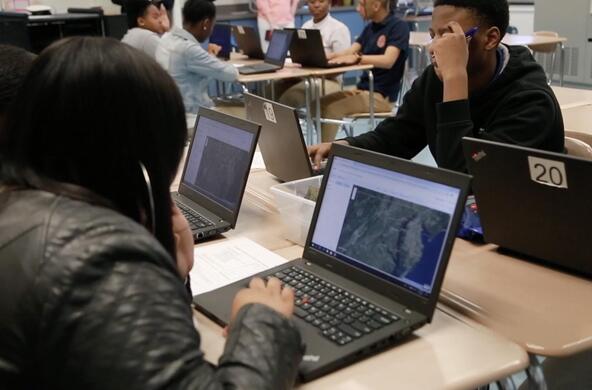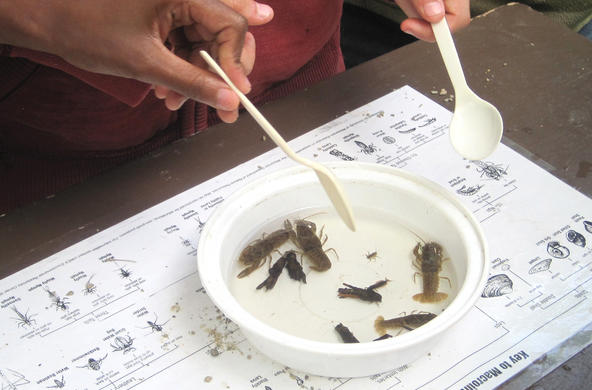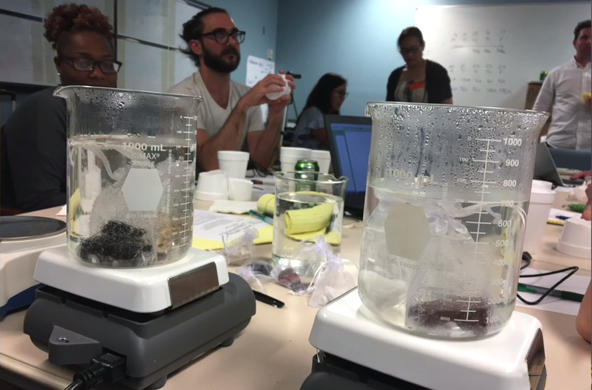- Profile
- Past Projects
- Publications
Alan Berkowitz is a leader in defining and advancing ecological literacy. He develops innovative programs to help students and teachers understand and appreciate the complex interactions that govern the natural world and the ways that people depend on and influence ecosystems. Berkowitz also works to build a more diverse community of ecologists by engaging high school and undergraduate students from groups currently underrepresented in ecology in research experiences.
As the Education Team Leader for the Baltimore Ecosystem Study, Berkowitz built a close collaboration with the Baltimore City Public Schools to bring cutting-edge research and teaching strategies into the classroom. Most recently, his Integrating Chemistry and Earth Science project developed curricula for high school chemistry students and teachers in the district. Schools in the Hudson Valley and across the nation have the opportunity to partner with Cary to implement freely available curriculum materials and participate in teacher training workshops. These collaborations bring together teachers, education researchers, and scientists — all working to improve ecological literacy.
Berkowitz serves on the Ecological Society of America’s Four-Dimensional Ecology Education Committee, which is advancing a framework for undergraduate ecology education. He also co-leads the Undergraduate Field Experiences Research Network that is building a community of scientists, educators, and education researchers dedicated to exploring and sharing best practices for inclusive and effective teaching and learning in field settings.
Berkowitz directed Cary Institute’s Research Experiences for Undergraduates program and the Urban Water Innovation Network Undergraduate Research Program. The Baltimore and Mid-Hudson Young Environmental Scientist programs have provided high school students with early exposure to the joys and challenges of ecological field studies. Through these programs, he helped hundreds of students gain confidence and expertise in environmental science.
-
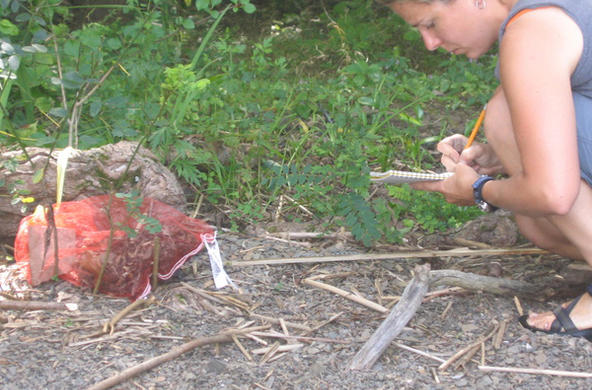
Data Explorations in Ecology
-
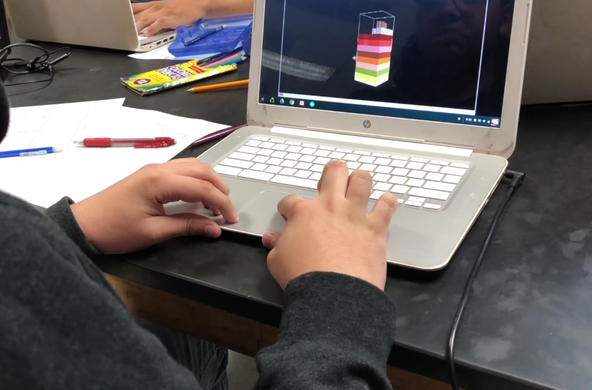
Comp Hydro
The Comp Hydro project addresses one of the most daunting challenges to developing scientific literacy in students: integrating teaching and learning of key ideas and practices of place-based environmental science with computational and quantitative science in authentic, innovative and effective ways.
-

Baltimore Ecosystem Study
A ground-breaking urban ecology project, the Baltimore Ecosystem Study investigates the ecological, cultural, and economic forces that shape the environmental quality of urbanized areas.


